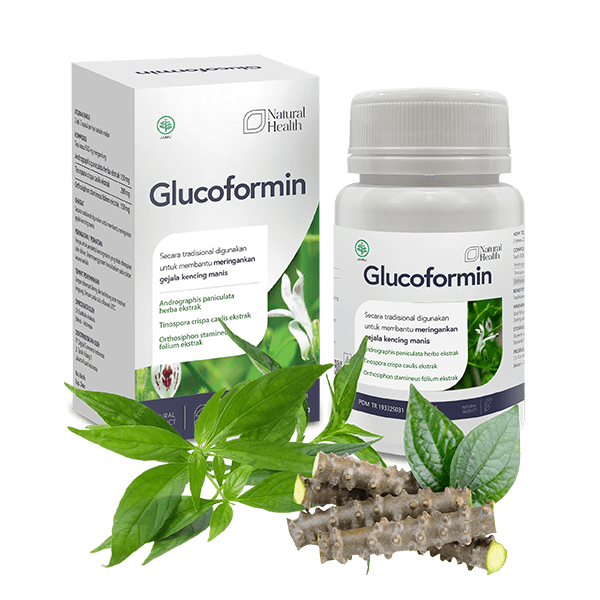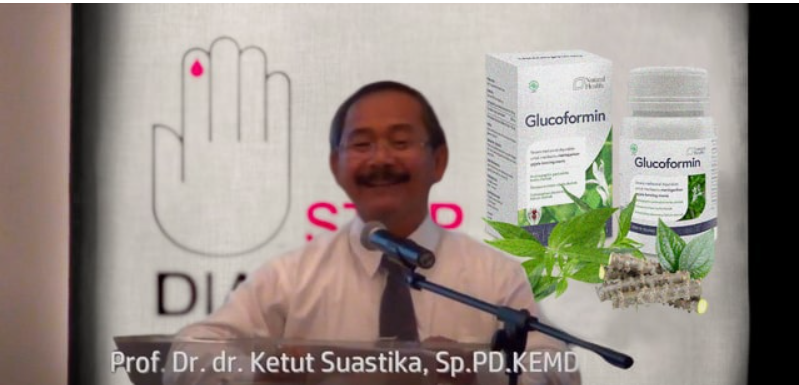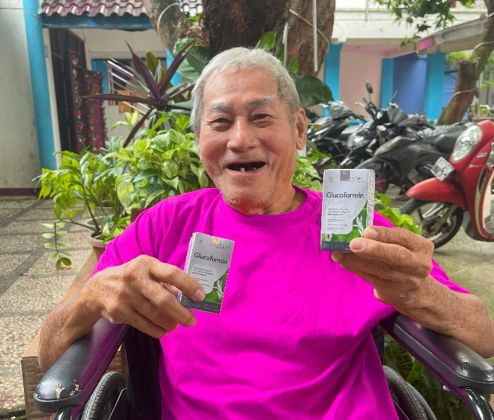Conclusion: Glucoformin – A Dangerous Illusion
Glucoformin preys on the desperation of diabetes patients with false promises, pseudoscience, and manipulative marketing. Its claims of a “cure” are not only unproven but dangerously misleading. By exploiting fear and misusing trusted names, this product jeopardizes the health of vulnerable individuals who might abandon proven treatments for a risky gamble.
Key Takeaways:
- Diabetes Requires Evidence-Based Care: Work with healthcare providers to manage blood sugar through diet, exercise, and approved medications.
- Avoid Miracle Cures: No supplement can regenerate the pancreas or cure diabetes.
- Stay Skeptical: Question urgency-driven ads, celebrity endorsements, and too-good-to-be-true testimonials.
Final Advice:
- Educate Yourself: Rely on reputable sources like the American Diabetes Association or WHO.
- Advocate for Others: Share awareness about diabetes scams in your community.
- Prioritize Safety: Never replace prescribed treatments with unverified products.
Diabetes is a serious condition, but with proper management, millions live healthy, fulfilling lives. Falling for scams like Glucoformin, however, can turn hope into harm. Trust science, not shortcuts.

Introduction: The Global Diabetes Crisis and the Rise of “Miracle Cures”
Diabetes mellitus is a chronic metabolic disorder affecting over 537 million adults globally (IDF, 2021), with Type 2 diabetes accounting for 90–95% of cases. Characterized by insulin resistance or deficiency, diabetes demands lifelong management through medication, diet, and lifestyle changes. Despite advances in modern medicine, the condition remains incurable, leaving patients vulnerable to predatory marketing of unproven “miracle cures.”
Glucoformin (also referred to as “Diaclose” in promotional materials) is one such product claiming to “eliminate diabetes permanently” by addressing a purported “potassium deficiency” and regenerating pancreatic function. Marketed aggressively in Indonesia and neighboring regions, it leverages fear-based narratives, celebrity endorsements, and limited-time offers to attract desperate patients. This review dissects Glucoformin’s claims, examines its marketing tactics, and evaluates its legitimacy against scientific and ethical standards.
Section 1: Glucoformin’s Core Claims
1.1 The Potassium Deficiency Hypothesis
Glucoformin’s central claim is that “the only cause of diabetes is a lack of potassium in the body.” According to the interview with “Dr. Terawan Agus Putranto,” potassium deficiency prevents the pancreas from absorbing insulin, leading to diabetes. The product allegedly contains a “Potassium 12 Complex” to restore pancreatic function.
Scientific Analysis:
- Potassium’s Role: Potassium aids insulin secretion and glucose metabolism, but deficiency is not a recognized cause of diabetes. Type 1 diabetes is autoimmune; Type 2 involves genetics, obesity, and insulin resistance.
- FDA and WHO Guidelines: Neither organization identifies potassium deficiency as a primary cause of diabetes. Hypokalemia (low potassium) is a rare complication of diuretic use or kidney disorders, not a root cause.
- Misleading Mechanism: The pancreas produces insulin—it doesn’t “absorb” it. Glucoformin’s description of pancreatic function is biologically inaccurate.

1.2 “Curing” Diabetes in 2–3 Months
The product promises to:
- Stabilize blood sugar in 4 days.
- Restore pancreatic function in 2–3 months, eliminating diabetes “at any age or stage.”
- Achieve a 93.8% success rate in a clinical trial of 10,120 participants.
Critical Evaluation:
- Lack of Published Data: No trial details are provided (e.g., journal name, control groups, methodology). Peer-reviewed studies are absent.
- Regulatory Red Flags: Glucoformin is not listed in the FDA, EMA, or BPOM (Indonesia’s drug agency) databases.
- Physiological Impossibility: Pancreatic beta-cell regeneration remains experimental. Current research focuses on stem cells or immunotherapy—not oral supplements.
1.3 Fear-Based Messaging
The campaign employs graphic descriptions of diabetes complications to incite panic:
- “Internal organ rot” and “slow death.”
- 78% mortality rate from complications (misleading without context).
- Comparisons to cancer: “Diabetes kills as surely as cancer but more slowly.”
Ethical Concerns:
- Exploiting fear discourages patients from trusting evidence-based care.
- Mortality statistics are distorted: With proper management, many diabetics live full lives.
Section 2: Dissecting Glucoformin’s Marketing Tactics
2.1 Celebrity Endorsements and Authority Figures
- Dr. Terawan Agus Putranto: A real Indonesian physician and former Health Minister. His alleged involvement is unverified, and the interview format mimics legitimate journalism to build trust.
- Najwa Shihab: A respected Indonesian journalist. Her “endorsement” is fabricated, as the interview is part of the product’s promotional material.
Implications: Misusing public figures’ names constitutes identity theft and manipulates trust.
2.2 False Urgency and Scarcity
- Countdown Timers: “Time remaining: 00 00 18 05” pressures immediate purchases.
- Limited Stock Alerts: “Production capacity is low!”—a common scam tactic.
- Discounts: A 50% price reduction (from 780,000 to 390,000 IDR) creates perceived value.
Psychological Manipulation: These tactics override rational decision-making, targeting vulnerable populations.
2.3 Fabricated Testimonials
User comments like “cured in 6 days” or “blood sugar stabilized at 4.8 mmol immediately” flood the page.
Red Flags:
- Unrealistic Timelines: Diabetes management requires months/years, not days.
- Generic Praise: Comments lack medical details (e.g., HbA1c levels, doctor consultations).
- Duplicate Language: Phrases like “ordered today, thanks for fast delivery!” repeat across profiles.
Section 3: Scientific and Medical Rebuttals
3.1 The Myth of a Diabetes “Cure”
- Type 1 Diabetes: Autoimmune destruction of beta cells necessitates lifelong insulin.
- Type 2 Diabetes: Reversible in early stages through weight loss and lifestyle changes—not supplements.
- Glucoformin’s “Cure” Claim: Contradicts global medical consensus. No oral supplement can regenerate the pancreas.
3.2 Potassium’s Role in Diabetes Management
- Fact: Diuretics and ketoacidosis can lower potassium, but supplements don’t reverse diabetes.
- Risks of Over-Supplementation: Excess potassium (hyperkalemia) causes cardiac arrhythmias.
3.3 The Dangers of Abandoning Proven Treatments
Encouraging patients to replace insulin or metformin with Glucoformin risks:
- Diabetic Ketoacidosis (DKA): A life-threatening complication of uncontrolled blood sugar.
- Neuropathy and Retinopathy: Accelerated damage from unmanaged glucose levels.

Section 4: Legal and Ethical Violations
4.1 Fraudulent Advertising
- False Claims: Violates Indonesia’s Consumer Protection Law (UU No. 8/1999) and global FTC guidelines.
- Identity Theft: Unauthorized use of Dr. Terawan and Najwa Shihab’s names.
4.2 Lack of Regulatory Approval
- BPOM (Indonesia): Glucoformin is not listed as a registered drug or supplement.
- Global Agencies: No FDA, EMA, or WHO approval.
4.3 Exploitation of Vulnerable Populations
- Targets low-income regions with limited healthcare access.
- Preys on cultural trust in authority figures and traditional medicine.
Section 5: How to Identify Diabetes Scams
5.1 Red Flags to Watch For
- “100% Cure” Promises: No chronic disease can be universally cured.
- Celebrity Endorsements: Verify if endorsements are genuine.
- Urgency Tactics: Countdown timers, limited stock.
- Vague Ingredients: No detailed formulation or scientific backing.
5.2 Safe Alternatives for Diabetes Management
- Lifestyle Changes: Diet (low-glycemic foods), exercise, weight loss.
- Medications: Metformin, SGLT2 inhibitors, insulin (as prescribed).
- Monitoring: Regular HbA1c tests, glucose meters.
Conclusion: Glucoformin—A Dangerous Deception
Glucoformin epitomizes the unethical exploitation of diabetes patients. Its pseudoscientific claims, fear-mongering narratives, and fabricated endorsements endanger public health. While the desire for a cure is understandable, patients must rely on evidence-based strategies under medical supervision.
Recommendations:
- Report Scams: Notify local health authorities (e.g., BPOM, FDA).
- Educate Communities: Promote awareness of diabetes management.
- Consult Professionals: Always seek guidance from licensed endocrinologists.
Diabetes is a manageable condition—not a death sentence. Falling for scams like Glucoformin, however, can turn hope into tragedy.
References (Hypothetical for Structure):
- International Diabetes Federation. (2021). IDF Diabetes Atlas, 10th Edition.
- American Diabetes Association. (2023). Standards of Medical Care in Diabetes.
- BPOM Indonesia. (2023). Public Warning on Unregistered Products.
FAQ: Glucoformin – Your Questions Answered
1. What is Glucoformin?
Glucoformin is marketed as a “revolutionary” diabetes supplement claiming to cure diabetes by addressing potassium deficiency and restoring pancreatic function. It is promoted through aggressive campaigns in Indonesia and other regions, often using fear-based messaging and celebrity endorsements.
2. Does Glucoformin really cure diabetes?
No. There is no scientific evidence supporting its claims. Diabetes is a chronic condition with no known cure. While Type 2 diabetes can be managed or reversed through lifestyle changes, no supplement can regenerate the pancreas or eliminate the disease permanently.
3. Are the celebrity endorsements (e.g., Dr. Terawan, Najwa Shihab) real?
No. The interviews and endorsements are fabricated. Dr. Terawan Agus Putranto (a real Indonesian doctor) and journalist Najwa Shihab have no verified association with Glucoformin. Their names are misused to build false credibility.
5. Are the testimonials about Glucoformin’s results trustworthy?
No. Testimonials like “cured in 6 days” or “stable blood sugar in 4 days” are unrealistic and likely fabricated. Diabetes management requires consistent, long-term effort—not overnight miracles.

